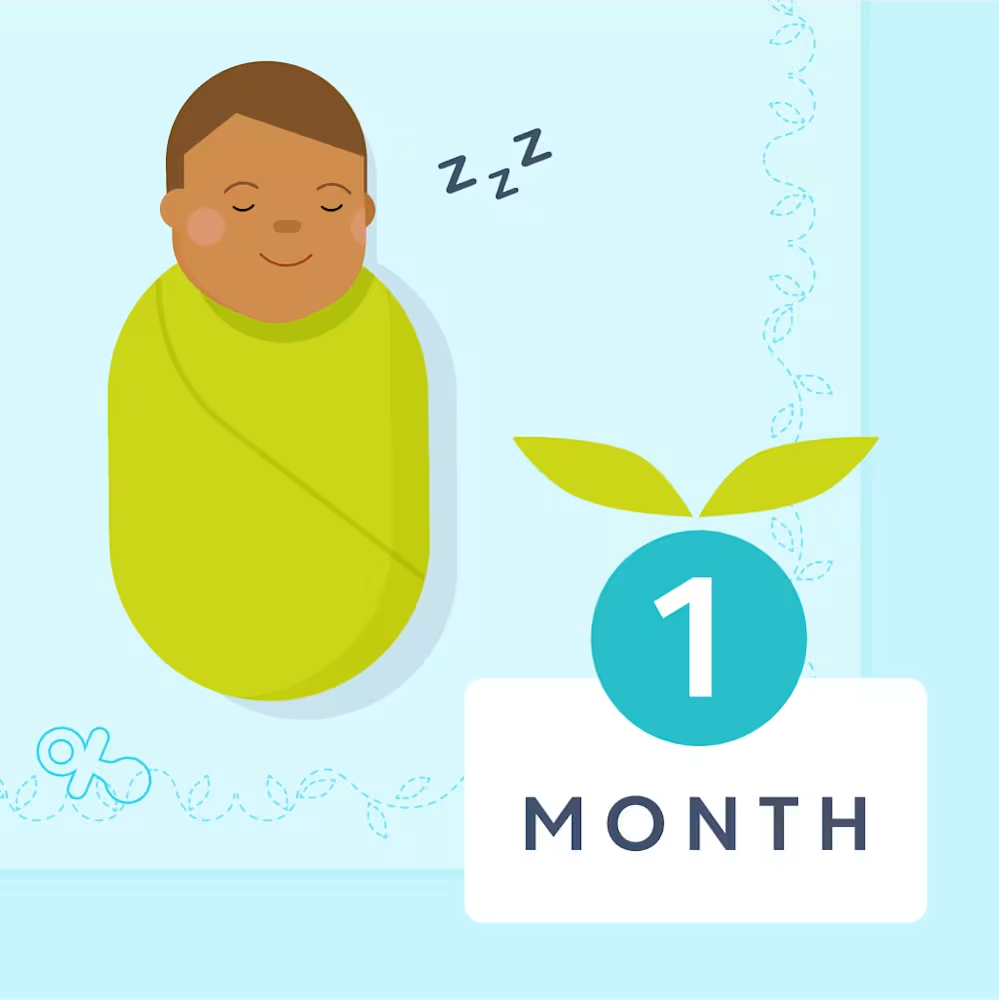Can you overfeed a newborn?
Updated Jan 02, 2026

Parents quickly learn there is so much to worry about with a new baby and feeding is one piece of that puzzle. Are they eating enough? Are they eating too much? Wouldn’t it be nice if your baby could just tell you if they are full or hungry?!
Well - they can! While your baby may not use words to tell you, they surely can use actions to let you know. Babies are more in tune with their hunger and fullness than adults and find it easy to simply stop eating once they are full. So when it comes to the possibility of overfeeding a newborn, it’s not very likely, but it can happen. Keep reading to find out more about the common causes of overfeeding and how to prevent them.
Differences in overfeeding breastfed babies vs. formula-fed babies
Many times you will hear it is impossible to overfeed a breastfed baby. While we’re not sure it’s impossible, it is probably highly unlikely. The number one reason for this is that a baby needs to be actively sucking in order to get milk from the breast, unlike a bottle that drips milk regardless of a baby’s sucking. Since babies are masters of their hunger and fullness cues, they simply stop sucking (eating) when they are full.
When it comes to formula-fed babies, or perhaps more accurately, bottle-fed babies, overfeeding can occur somewhat easier. Since milk will flow from the bottle without sucking, it can be easier to overfeed, especially if a parent or caregiver is distracted and doesn’t notice a baby’s fullness cues. Additionally, when feeding with a bottle, it’s easy to see how much the baby has drunk. Sometimes parents or caregivers feel the baby hasn’t had enough, so they coax them to drink more or to finish the bottle which leads to overfeeding.
What causes my baby to be overfed?
Missing baby’s hunger and fullness cues
Although overfeeding a baby is rare, it can happen. The most common cause of an overfed baby is a parent or caregiver misinterpreting a baby’s hunger and fullness cues. When a baby has enough to eat, they turn away from the breast or bottle and do not want to suck. If a parent or caregiver coaxes the baby into eating more or finishing a bottle, overfeeding can occur.
Higher calorie formulas
Some babies require concentrated, or higher-calorie, formulas in order to help boost their growth. They are oftentimes used for preemies or babies with feeding challenges. However, they can cause overfeeding in babies who do not actually need them. Additionally, an improperly mixed formula could lead to a formula with more calories per ounce than expected.
Wrong nipple size
Babies who use a bottle need to have the right nipple size in order to be able to feed properly. The nipple size determines how much milk and how fast it comes out of the bottle. If the nipple hole is too big, too much milk may come out too quickly and could cause the baby to eat too quickly and therefore overfeed.
Feeding at the first sign of discomfort
A tired or uncomfortable baby shows similar signs of distress as a hungry baby. Being fussy or crying can mean a variety of things including your baby being tired, overstimulated, or hungry. Sometimes parents or caregivers default to feeding at the first sign of a fussy baby. This can lead to overfeeding if continuous opportunities to eat begin to override a baby’s hunger and fullness cues.
How to avoid overfeeding your baby
Follow hunger & fullness cues
Babies have a strong, innate sense that allows them to regulate their hunger and fullness. Do your best to understand and respect their cues — since they won't typically follow a predictable for a couple of months. When a baby wants to eat, they will turn toward the breast or bottle and willingly suck to get milk. When they are done, they will stop eating, turn away, and oftentimes refuse to suck.
Mix and use the formula correctly
Make sure to mix the formula according to the instructions on the package unless told otherwise by your pediatrician or medical team. An incorrectly mixed formula can result in a formula that has more calories per ounce than intended. If your baby requires a higher-calorie formula, make sure to follow up closely with your pediatrician to ensure it is used for the proper amount of time.
Use the right nipple size
Choose the right nipple size for your baby’s bottle to help avoid overfeeding. If the flow level is too much for your baby, they will likely gag, spit up, or seem to be struggling to keep up eating. The strength of your baby’s suck also impacts the flow of formula out of the bottle. It’s worth noting that most nipples come with an age recommendation, but these don’t necessarily mean that they are right for your baby’s needs. Evaluate how your baby is eating and adjust nipple size as needed.
Avoid feeding as a default response
When your baby starts to fuss or cry, stop and pause before immediately attempting to feed. Go through a short list of your baby’s possible needs in your head. Has it been a while since they’ve had their diaper changed? Could it be naptime? Maybe they just want to be held and comforted. Not to say hunger is never the cause of fussiness, but rather a reminder that it is a good idea to evaluate all of their needs before starting to feed.
Share article:
Note: The content on this site is for informational purposes only and should not replace medical advice from your doctor, pediatrician, or medical professional. If you have questions or concerns, you should contact a medical professional.
Share article:







